
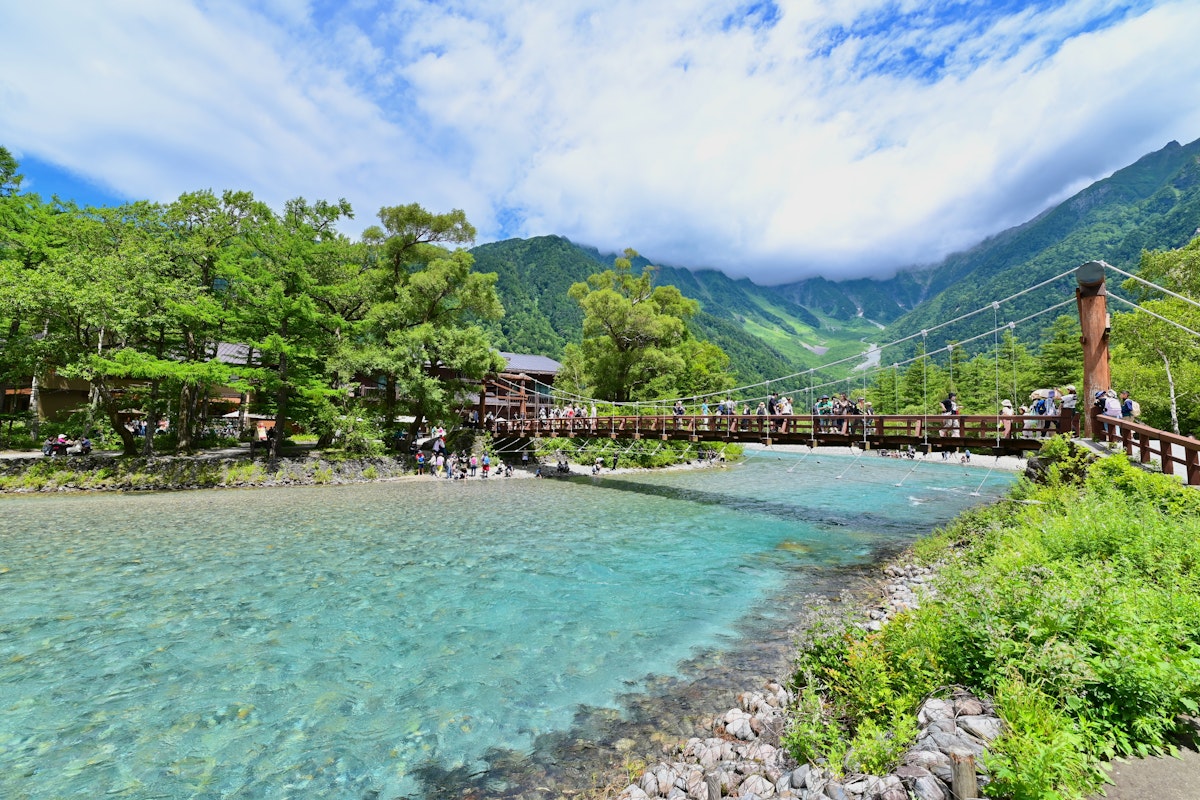
ซ่อนตัวอยู่ในภาคเหนือของเทือกเขาแอลป์ญี่ปุ่น คามิโคจิ เป็นสวรรค์ทางธรรมชาติอันน่าทึ่งในจังหวัดนากาโน่ ที่นี่ให้นักท่องเที่ยวได้หลีกหนีอย่างเงียบสงบในภูมิทัศน์ภูเขาอันตระหง่านของญี่ปุ่น
คามิโคจิล้อมรอบด้วยยอดเขาสูงตระหง่านของเทือกเขาโฮทากะ และล้อมรอบด้วยน้ําทะเลใสราวคริสตัลของแม่น้ําอาซึสะ เป็นสถานที่ที่ผู้รักธรรมชาติ นักปีนเขา และผู้ที่ต้องการสัมผัสกับทรัพย์สินทางวัฒนธรรมของชาติญี่ปุ่นไม่ควรพลาด ไม่ว่าจะเป็นการสํารวจเส้นทางเดินป่าที่มีชื่อเสียง ตื่นตาตื่นใจไปกับแม่น้ําอาซึสะที่สวยงาม หรือดื่มด่ํากับอากาศบริสุทธิ์ของสวรรค์บนเทือกเขาแอลป์แห่งนี้ คามิโคจิให้ความรู้สึกเงียบสงบและความมหัศจรรย์ที่ไม่มีใครเทียบได้
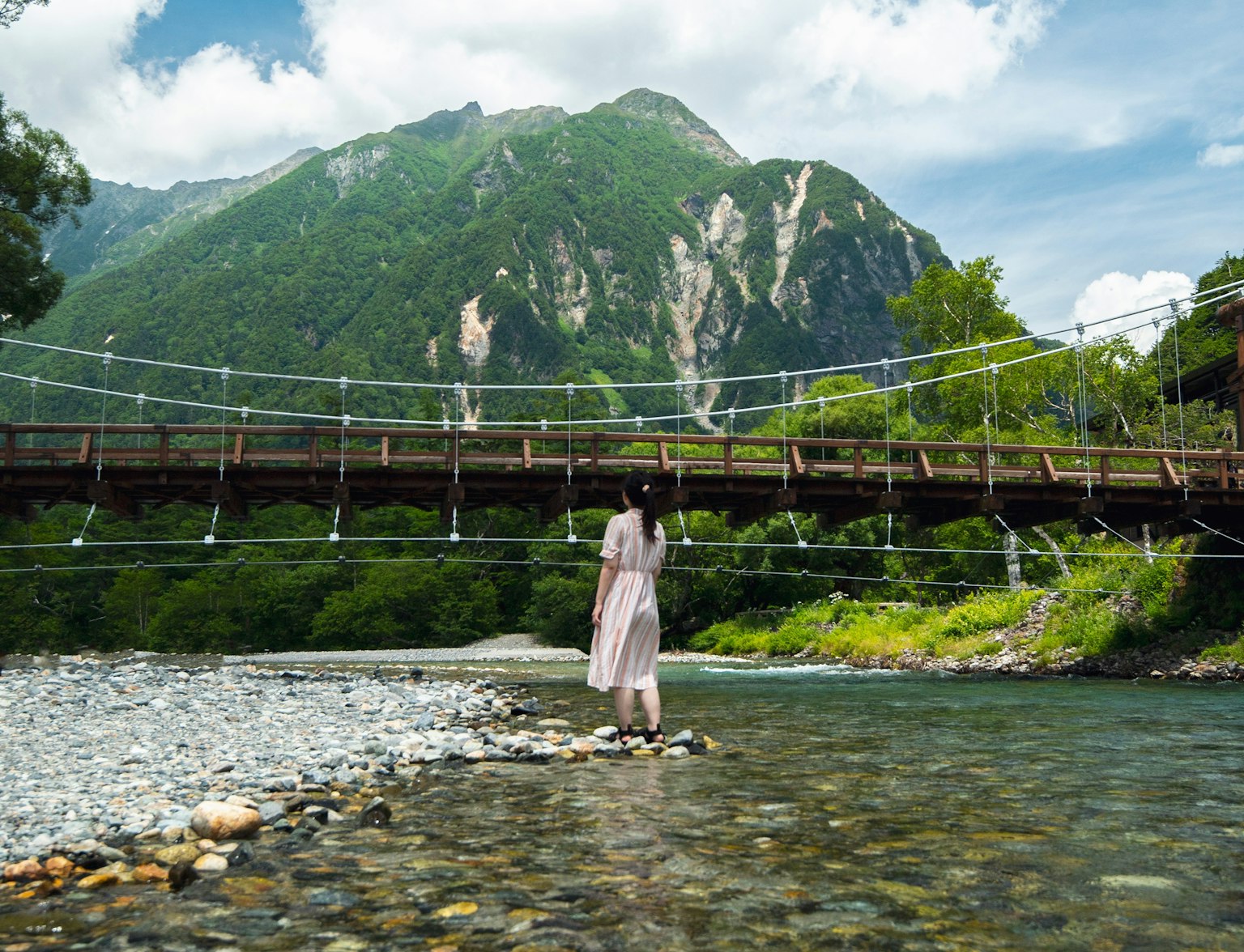
สํารวจคามิโคจิ รีสอร์ทบนภูเขาที่มีชื่อเสียงของญี่ปุ่นในการผจญภัยเดินป่าพร้อมไกด์ 6-8 ชั่วโมง
คามิโคจิอยู่เหนือระดับน้ําทะเลประมาณ 1,500 เมตร และเป็นส่วนหนึ่งของ อุทยานแห่งชาติชูบุซังกากู. มีชื่อเสียงในด้านภูมิประเทศที่สวยงามและความงามตามธรรมชาติ เป็นที่ตั้งของระบบนิเวศที่หลากหลาย รวมถึงหนองน้ํา ป่าไม้ และทุ่งหญ้าอัลไพน์
ภูมิภาคนี้กลายเป็นจุดหมายปลายทางทางธรรมชาติที่มีค่าที่สุดแห่งหนึ่งของญี่ปุ่น ส่วนหนึ่งเป็นผลมาจากความพยายามในการอนุรักษ์ ซึ่งจํากัดไม่ให้ยานพาหนะส่วนตัวเข้าสู่คามิโคจิเพื่อลดผลกระทบต่อสิ่งแวดล้อม นักท่องเที่ยวสามารถเข้าคามิโคจิได้ด้วยระบบขนส่งสาธารณะ เช่น รถประจําทางหรือแท็กซี่เท่านั้น ส่วนใหญ่ออกจากสถานีขนส่งเมืองมัตสึโมโตะหรือสถานีขนส่งซาวันโดะ
ใจกลางคามิโคจิคือสะพานคัปปะอันเป็นสัญลักษณ์ ซึ่งทอดข้ามแม่น้ําอาซึสะ และมีทิวทัศน์ที่ไม่มีใครเทียบได้ของภูเขาโดยรอบ พื้นที่นี้เต็มไปด้วยประวัติศาสตร์ธรรมชาติ โดยมีสระน้ําเมียวจิน สระน้ําไทโช และภูเขาไฟที่ยังคุกรุ่นอยู่ใกล้เคียง
คามิโคจิเคารพโลกธรรมชาติ โดยมีนักปีนเขาและนักปีนเขาแสดงความเคารพต่อความงามของเทือกเขาแอลป์ตอนเหนือและภูมิทัศน์อันเงียบสงบที่ได้รับการปกป้องมาหลายชั่วอายุคน
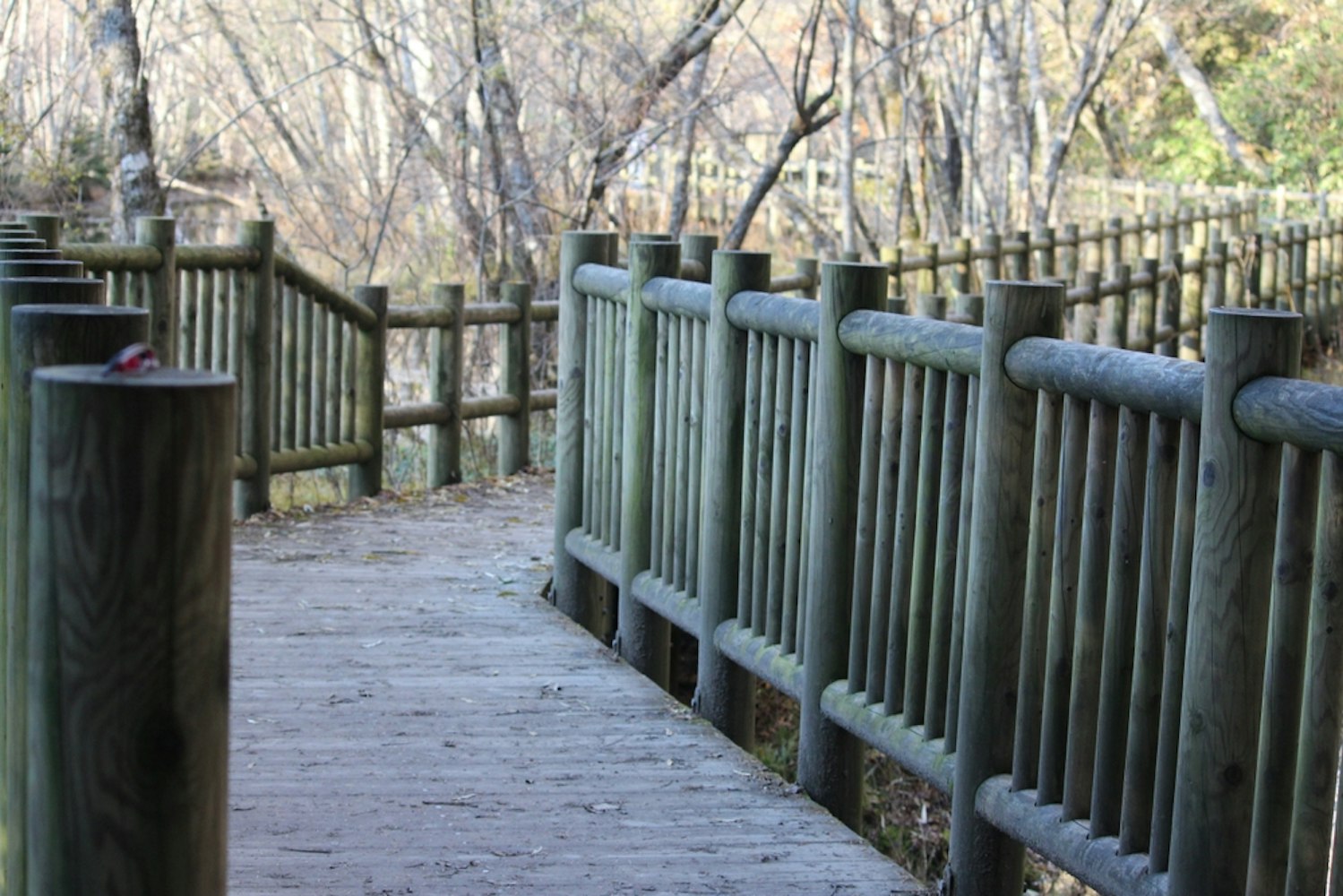
คามิโคจิมีหลากหลาย เส้นทางเดินป่าทําให้เข้าถึงได้สําหรับทุกระดับทักษะ นักท่องเที่ยวสามารถเดินไปตามเส้นทางที่งดงามไปตามแม่น้ําอาซึสะ ซึ่งมองเห็นทิวทัศน์อันน่าทึ่งของภูเขาโดยรอบและพื้นที่ป่าอันเงียบสงบ
นักปีนเขาที่มีประสบการณ์มากขึ้นสามารถรับมือกับเส้นทางที่ท้าทาย เช่น การปีนขึ้นไปบนภูเขายาริ ซึ่งให้การเดินป่าหลายวันผ่านหุบเขายาริซาวะและขึ้นไปยังยอดเขาที่สูงที่สุดแห่งหนึ่งของญี่ปุ่น เส้นทางนี้เหมาะสําหรับการเพลิดเพลินกับอากาศบริสุทธิ์และความงามตามธรรมชาติของคามิโคจิ
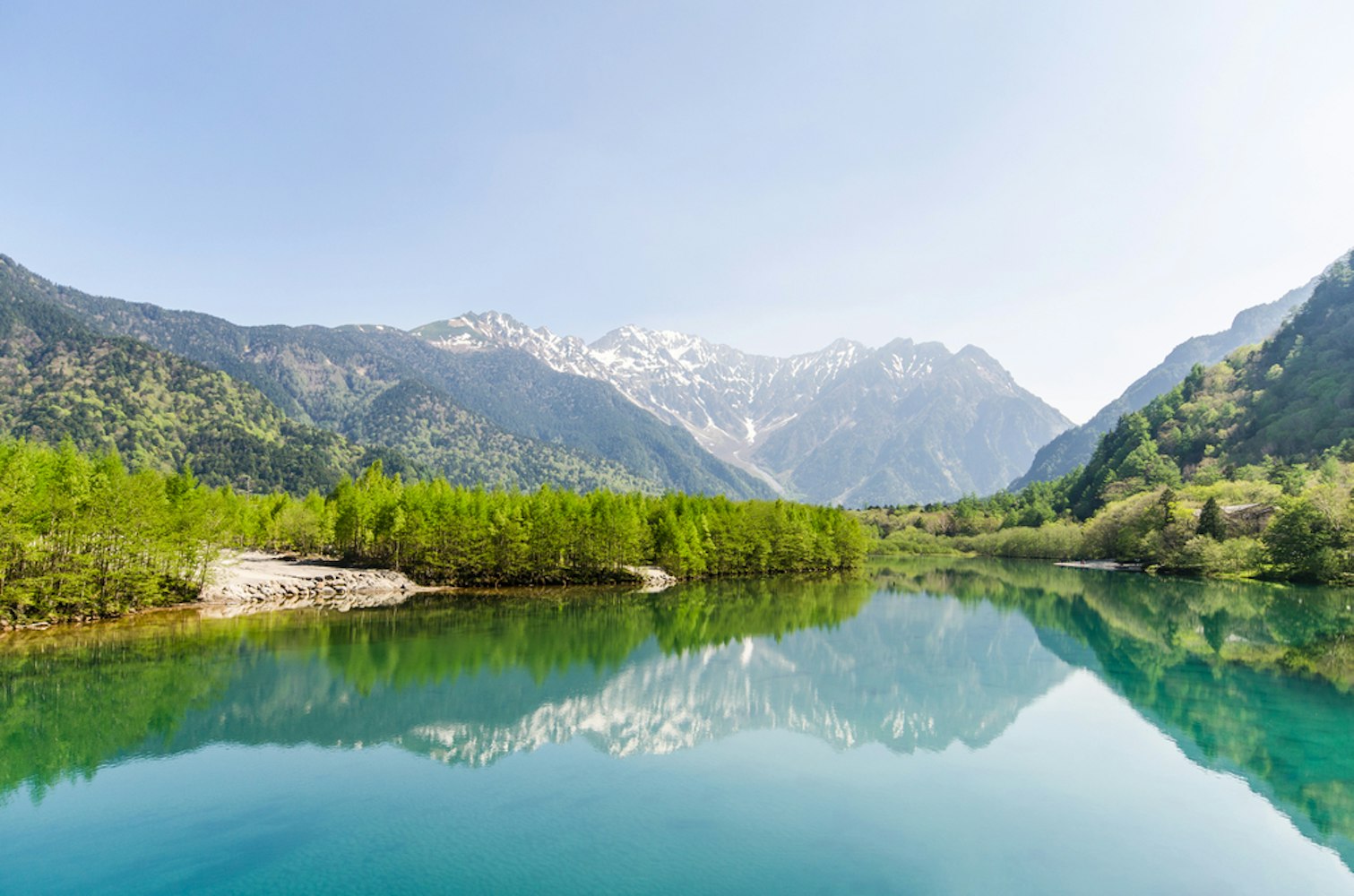
สระน้ําเมียวจินเป็นจุดที่เงียบสงบในคามิโคจิที่มีชื่อเสียงในด้านน้ําทะเลใสและมีความสําคัญทางจิตวิญญาณอย่างลึกซึ้ง เป็นส่วนหนึ่งของศาลเจ้าโฮทากะอันศักดิ์สิทธิ์
บรรยากาศอันเงียบสงบได้รับการเสริมด้วยแสงสะท้อนอันน่าทึ่งของภูเขาโดยรอบ งานที่โดดเด่นคือ "Ofune Matsuri" ประจําปีในเดือนตุลาคม ซึ่งเฉลิมฉลองความเชื่อมโยงระหว่างธรรมชาติและเทพเจ้าชินโตในท้องถิ่น
บริเวณใกล้เคียง Taisho Pond ก่อตัวขึ้นในปี 1915 หลังจากการปะทุของภูเขายาเกะ รูปลักษณ์ที่น่าขนลุกและแปลกประหลาด โดยมีลําต้นของต้นไม้ที่จมอยู่ใต้น้ํายังคงมองเห็นได้ ทําให้เป็นที่ชื่นชอบสําหรับผู้มาเยือนที่แสวงหาทิวทัศน์ที่ปกคลุมไปด้วยหมอกอันน่าทึ่ง
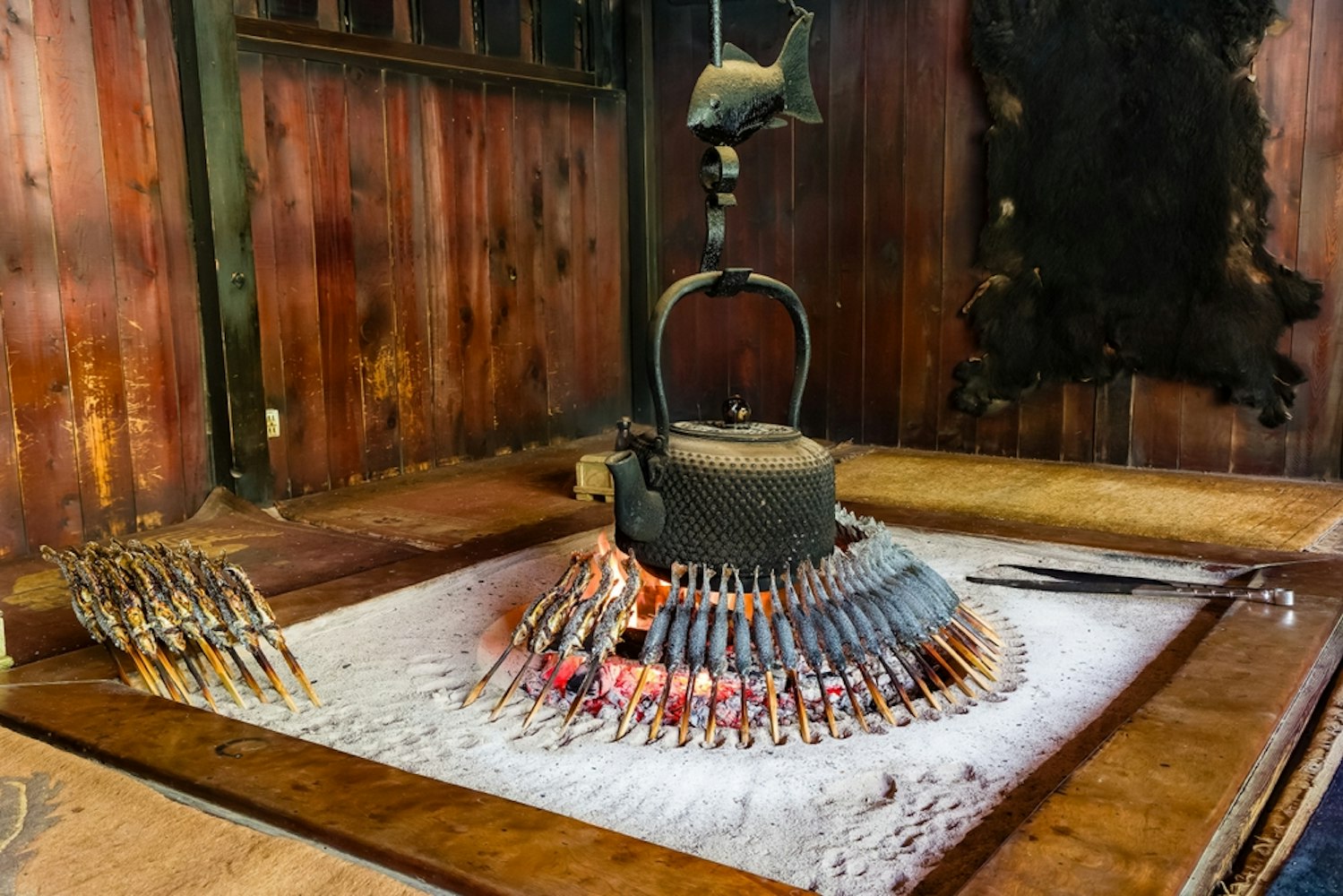
คามิโคจิมีบ้านพักและกระท่อมบนภูเขาแบบชนบทหลายแห่ง ให้โอกาสพิเศษในการดื่มด่ํากับสภาพแวดล้อมทางธรรมชาติที่สวยงามของ เทือกเขาแอลป์ญี่ปุ่น. ที่พักเหล่านี้ เช่น Nishi-Itoya Mountain Lodge และ Kamikochi Myojinkan ได้รับการออกแบบให้กลมกลืนกับสภาพแวดล้อม โดยมักจะมีห้องพักสไตล์ญี่ปุ่นแบบดั้งเดิมพร้อมการตกแต่งภายในด้วยไม้
การเข้าพักในบ้านพักเหล่านี้ทําให้นักท่องเที่ยวได้สัมผัสกับความงามอันเงียบสงบของคามิโคจิได้ดีที่สุด โดยเฉพาะอย่างยิ่งในช่วงเช้าตรู่หรือคืนที่เต็มไปด้วยดวงดาวซึ่งเป็นช่วงที่เงียบสงบที่สุด บ้านพักบางแห่งยังมีการแช่น้ําร้อน เช่น ที่พบในโยโกะโอะ ซึ่งช่วยเพิ่มประสบการณ์การอยู่ในใจกลางธรรมชาติ
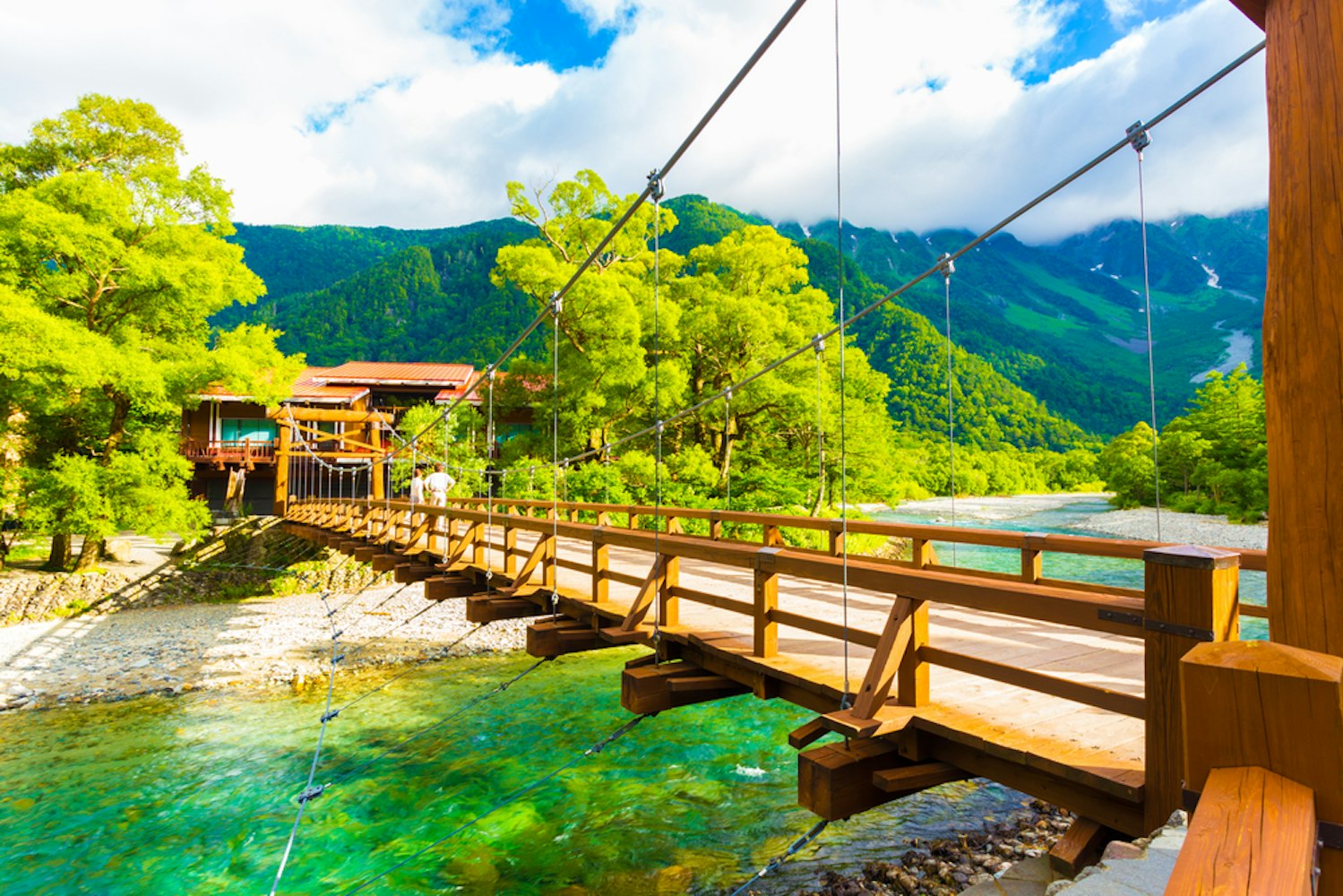
สะพานคัปปะหรือคัปปาบาชิเป็นสะพานแขวนไม้ที่ทอดข้ามแม่น้ําอาซึสะในคามิโคจิซึ่งเป็นพื้นที่รีสอร์ทยอดนิยมในเทือกเขาแอลป์ตอนเหนือของญี่ปุ่น โครงสร้างอันเป็นสัญลักษณ์แห่งนี้ให้นักท่องเที่ยวชมทิวทัศน์อันน่าทึ่งของเทือกเขาโฮทากะโดยรอบ
สะพานนี้ตั้งอยู่ห่างจากสถานีขนส่งคามิโคจิโดยใช้เวลาเดินเพียง 5 นาที เป็นจุดศูนย์กลางสําหรับนักปีนเขาที่มุ่งหน้าไปยังเส้นทางต่างๆ สะพานแห่งนี้ขึ้นชื่อเรื่องบรรยากาศที่เงียบสงบในยามเย็น และยังเป็นสถานที่สําคัญสําหรับการดูดาวภายใต้ท้องฟ้าแจ่มใสของคามิโคจิ
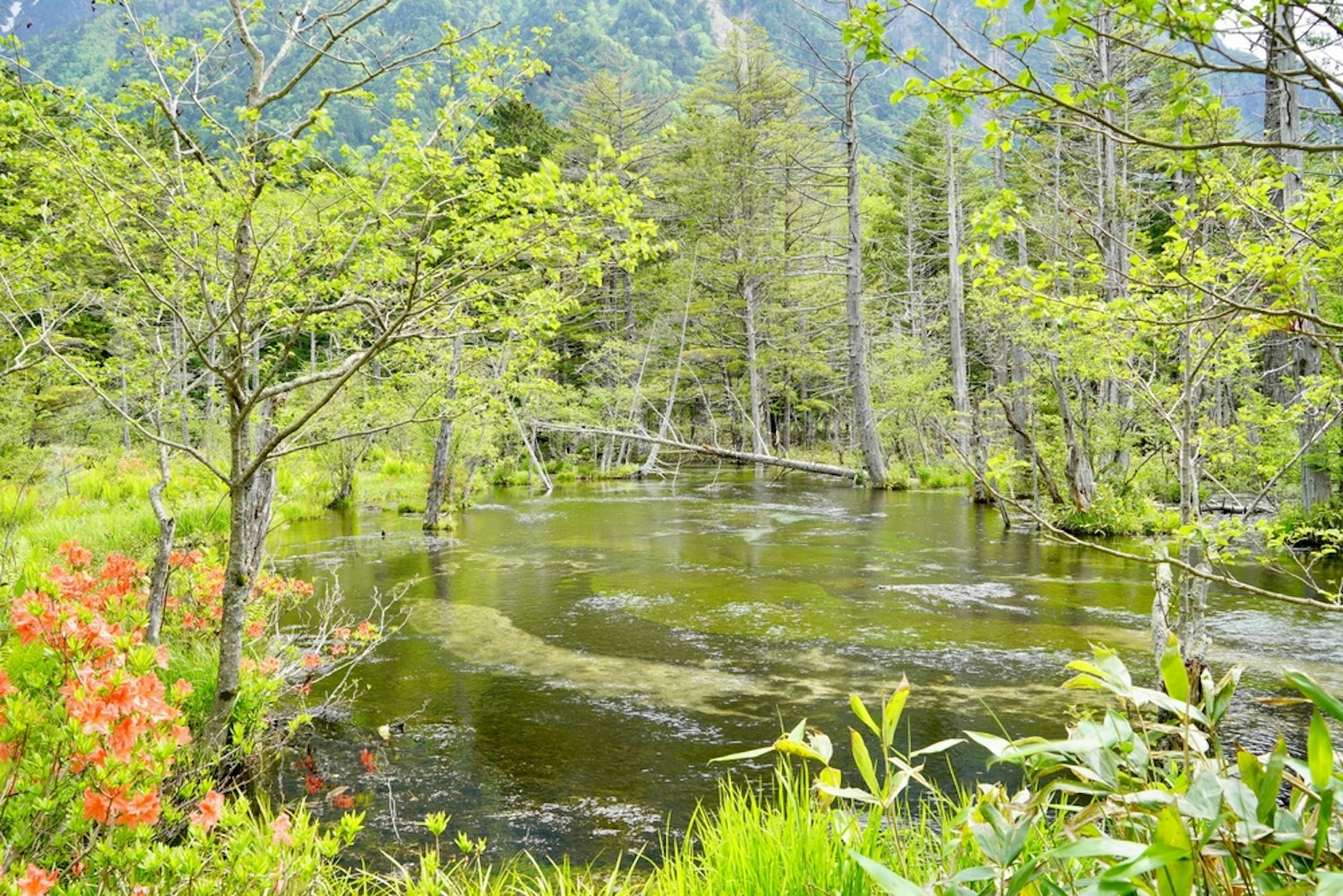
บึงทาชิโระและบึงดาเคซาวะเป็นพื้นที่ที่สวยงามในคามิโคจิที่ให้ผู้มาเยือนได้สัมผัสกับความงามตามธรรมชาติของภูมิภาคอย่างเงียบสงบ บึงทาชิโระตั้งอยู่ตามเส้นทางเดินป่าระหว่างสระน้ําไทโชและสะพานคัปปะ เป็นที่รู้จักจากพืชเทือกเขาแอลป์ที่มีเอกลักษณ์เฉพาะตัว และความแตกต่างอย่างสิ้นเชิงระหว่างหนองน้ําที่มีชีวิตชีวาและยอดเขาโดยรอบของเทือกเขาโฮทากะ
พื้นที่ชุ่มน้ําที่ราบเรียบและเต็มไปด้วยหญ้าแห่งนี้เหมาะสําหรับการเดินเล่นสบาย ๆ พร้อมเพลิดเพลินกับทัศนียภาพอันงดงาม บึงดาเคซาวะตั้งอยู่ไม่ไกลจากสะพานคัปปะ มีทิวทัศน์อันน่าทึ่งของเทือกเขาแอลป์ตอนเหนือของญี่ปุ่น
หนองน้ําทั้งสองเป็นโอกาสที่ดีในการสํารวจคามิโคจิอย่างผ่อนคลาย โดยมีภูมิทัศน์ที่สวยงามและบรรยากาศอันเงียบสงบ

คามิโคจิเป็นที่อยู่อาศัยของสัตว์ป่าหลากหลายชนิด แม้ว่าจะไม่ค่อยได้เห็นหมี และแนะนําให้นักปีนเขาพกระฆังหมีไว้เป็นการป้องกันไว้ก่อน ภูมิภาคนี้ยังมีโอกาสที่ยอดเยี่ยมสําหรับการดูนก โดยมีนกประมาณ 140 สายพันธุ์ที่บันทึกไว้ในพื้นที่ รวมถึงปลาแร่ (ไรโช) และนกหัวญี่ปุ่น
นักท่องเที่ยวสามารถสังเกตนกเหล่านี้ได้ โดยเฉพาะอย่างยิ่งในพื้นที่ต่างๆ เช่น บึงทาชิโระ และตามเส้นทางใกล้กับ แม่น้ําอาซึสะ. ในฐานะที่เป็นส่วนหนึ่งของอุทยานแห่งชาติ Chubu Sangaku ที่ได้รับการคุ้มครองระบบนิเวศอันอุดมสมบูรณ์ของคามิโคจิ รวมถึงสัตว์เลี้ยงลูกด้วยนม เช่น ลิงแสมญี่ปุ่นและอีกา มอบประสบการณ์สัตว์ป่าที่ไม่เหมือนใคร
คามิโคจิ เปิดให้บริการตั้งแต่กลางเดือนเมษายนถึงกลางเดือนพฤศจิกายน และแต่ละฤดูกาลมีเสน่ห์ที่เป็นเอกลักษณ์ ช่วงเวลาที่ได้รับความนิยมมากที่สุดในการเยี่ยมชมคือช่วงวันหยุดฤดูร้อน ตั้งแต่กลางเดือนกรกฎาคมถึงกลางเดือนตุลาคม ซึ่งเป็นช่วงที่อากาศอบอุ่นและยอดเขาโดยรอบปราศจากหิมะ
การมาเยือนคามิโคจิในช่วงกลางเดือนตุลาคมเป็นประสบการณ์มหัศจรรย์สําหรับผู้ที่ชื่นชอบใบไม้เปลี่ยนสี เนื่องจากภูเขาและป่าไม้เต็มไปด้วยเฉดสีแดง สีส้ม และสีทอง ฤดูฝนซึ่งอยู่ระหว่างเดือนมิถุนายนถึงกรกฎาคม อาจมีฝนชื้นและคาดเดาไม่ได้ แต่มักจะหลีกทางให้กับภูมิประเทศที่เขียวชอุ่มและเขียวชอุ่มสวยงาม
พื้นที่นี้ปิดในฤดูหนาวเนื่องจากหิมะตกหนัก ทําให้ไม่สามารถเข้าถึงได้จนถึงต้นเดือนเมษายน
คามิโคจิสามารถเข้าถึงได้ด้วยระบบขนส่งสาธารณะเท่านั้น เนื่องจากห้ามใช้รถยนต์ส่วนตัว เส้นทางที่พบบ่อยที่สุดเริ่มต้นที่ สถานีมัตสึโมโตะซึ่งนักท่องเที่ยวสามารถขึ้นรถบัสไปยังคามิโคจิได้
รถบัสออกเดินทางเป็นประจําจากสถานีขนส่งมัตสึโมโตะและสถานีขนส่งซาวันโดะ และแท็กซี่ยังขนส่งนักท่องเที่ยวจากสถานที่ใกล้เคียงอีกด้วย โดยทั่วไปการเดินทางจะรวมถึงการนั่งรถบัสผ่านอุโมงค์ Kama ซึ่งสามารถมองเห็นทิวทัศน์อันงดงามของภูเขาโดยรอบ
สําหรับผู้ที่เดินทางจากโตเกียวมีรถบัสสายตรงจากสถานีชินจูกุไปยังคามิโคจิ นักท่องเที่ยวยังสามารถขึ้นรถไฟ Matsumoto Electric Railway ไปยังสถานี Shin Shimashima และนั่งรถบัสไปยังคามิโคจิ
รถบัสข้ามคืนยังให้บริการในช่วงฤดูท่องเที่ยว จึงเป็นตัวเลือกที่สะดวกสําหรับนักท่องเที่ยวที่มาเยือนคามิโคจิจากส่วนอื่นๆ ของญี่ปุ่น
สําหรับรายละเอียดเพิ่มเติมเกี่ยวกับตัวเลือกการเดินทาง โปรดตรวจสอบตารางเวลาท้องถิ่นล่วงหน้า โดยเฉพาะในช่วงฤดูท่องเที่ยว
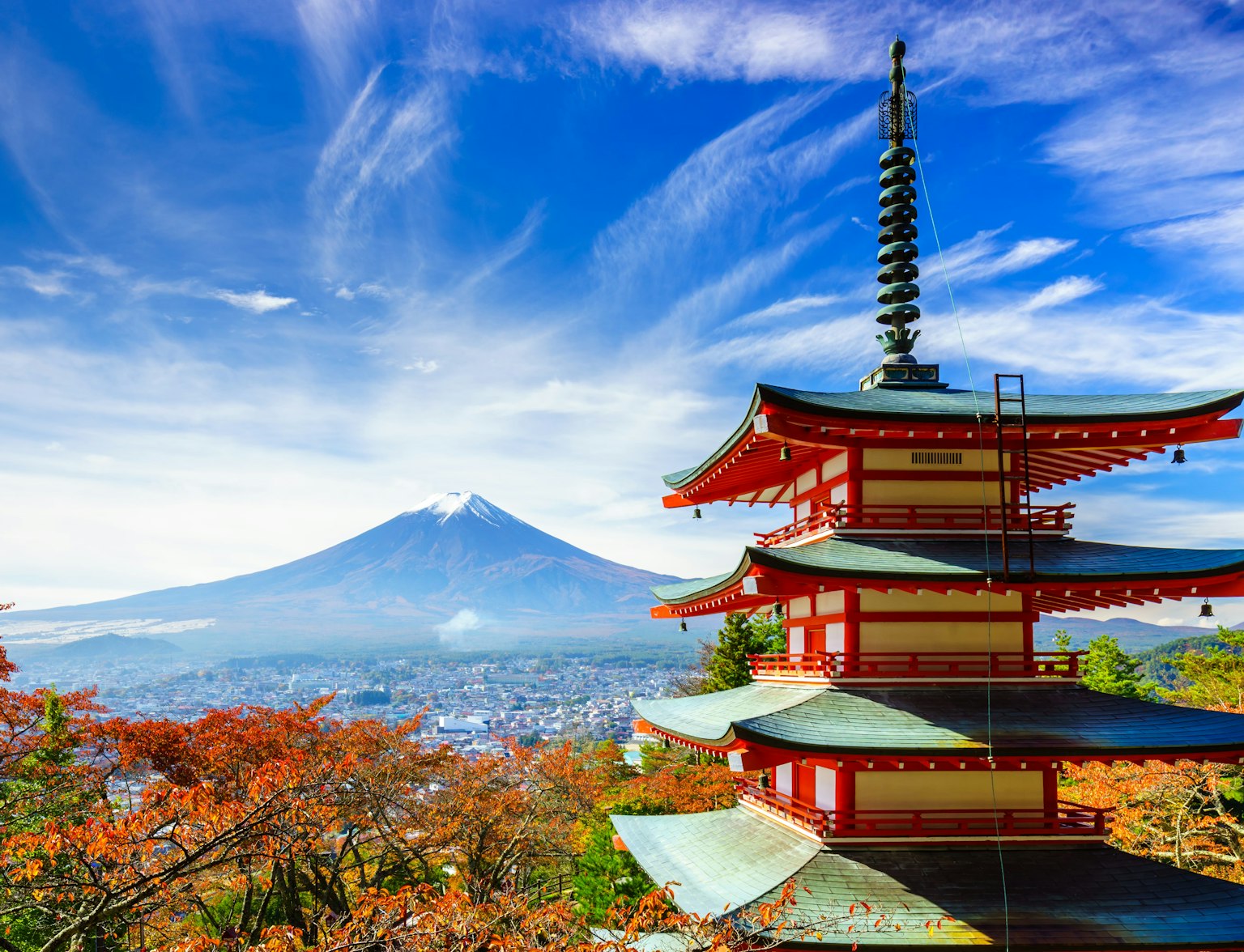
ค้นพบญี่ปุ่นอย่างไร้ขีดจํากัดด้วย JR Pass ที่เข้าถึงได้ทั้งหมดของเรา!
คามิโคจิเป็นสถานที่ศักดิ์สิทธิ์อันบริสุทธิ์ในใจกลางเทือกเขาแอลป์ของญี่ปุ่น เป็นสถานที่พักผ่อนที่เงียบสงบสําหรับผู้ที่ชื่นชอบกิจกรรมกลางแจ้ง ด้วยภูมิประเทศที่น่าทึ่ง แม่น้ําใสราวคริสตัล และเส้นทางเดินป่าที่สวยงาม คามิโคจิจึงแสดงให้เห็นถึงความงามตามธรรมชาติที่ดีที่สุดของญี่ปุ่นอย่างแท้จริง
การเยี่ยมชมเส้นทางของคามิโคจิ ตื่นตาตื่นใจไปกับแม่น้ําอาซึสะที่สวยงาม หรือพักในบ้านพักบนภูเขาแบบดั้งเดิมเป็นประสบการณ์ที่ยากจะลืมเลือน วางแผนการเดินทางของคุณระหว่างกลางเดือนเมษายนถึงกลางเดือนพฤศจิกายน และชมความงดงามของสมบัติของชาติแห่งนี้
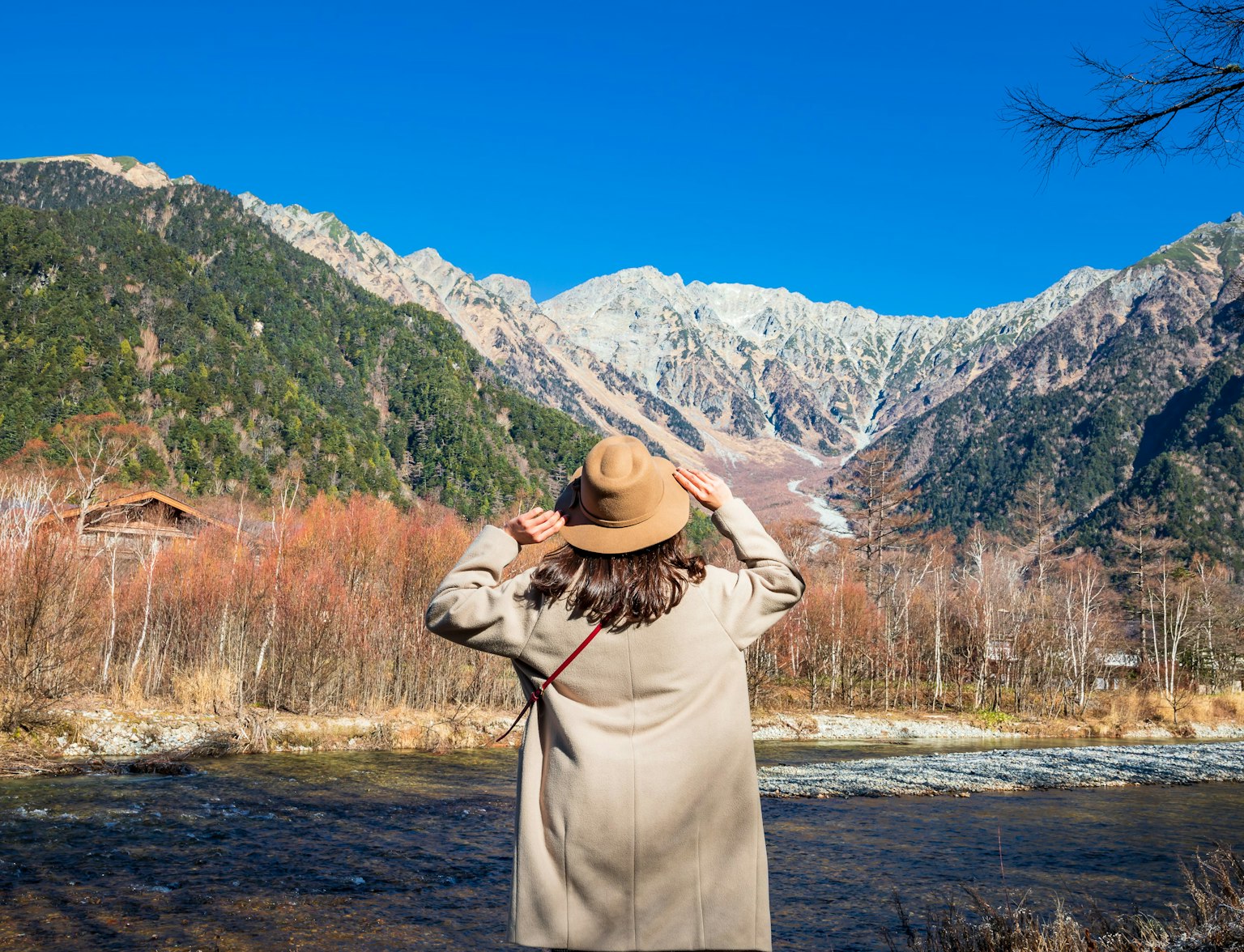
เริ่มต้นการเดินทางเต็มวันสู่ใจกลางภูมิทัศน์ธรรมชาติอันน่าหลงใหลของญี่ปุ่น
คามิโคจิเป็นที่รู้จักในเรื่องอะไร?
คามิโคจิ อัญมณีที่ไม่มีใครแตะต้องในเทือกเขาแอลป์ตอนเหนือของญี่ปุ่น
ใช้เวลานานแค่ไหนจาก โตเกียว ไป คามิโคจิ?
โดยทั่วไปการขับรถจากโตเกียวไปยังคามิโคจิจะใช้เวลาประมาณ 3 ชั่วโมง 45 นาที
ฉันควรพักใน คามิโคจิ นานแค่ไหน?
การพักค้างคืนเป็นตัวเลือกที่สมบูรณ์แบบสําหรับผู้ที่ต้องการสํารวจทิวทัศน์ที่สวยงาม เช่น สระน้ําไทโชอิเกะ บึง และสระน้ําทาชิโระ หรือเพลิดเพลินกับการเดินป่าเบา ๆ
คุณสามารถขับรถไปคามิโคจิได้หรือไม่?
ไม่อนุญาตให้รถยนต์ส่วนตัวเข้า Kamikochi โดยตรง ดังนั้นคุณต้องจอดรถที่ลานจอดรถ Sawando และเดินทางต่อด้วยรถบัส
คามิโคจิสูงเท่าไหร่?
4,600 ฟุต



